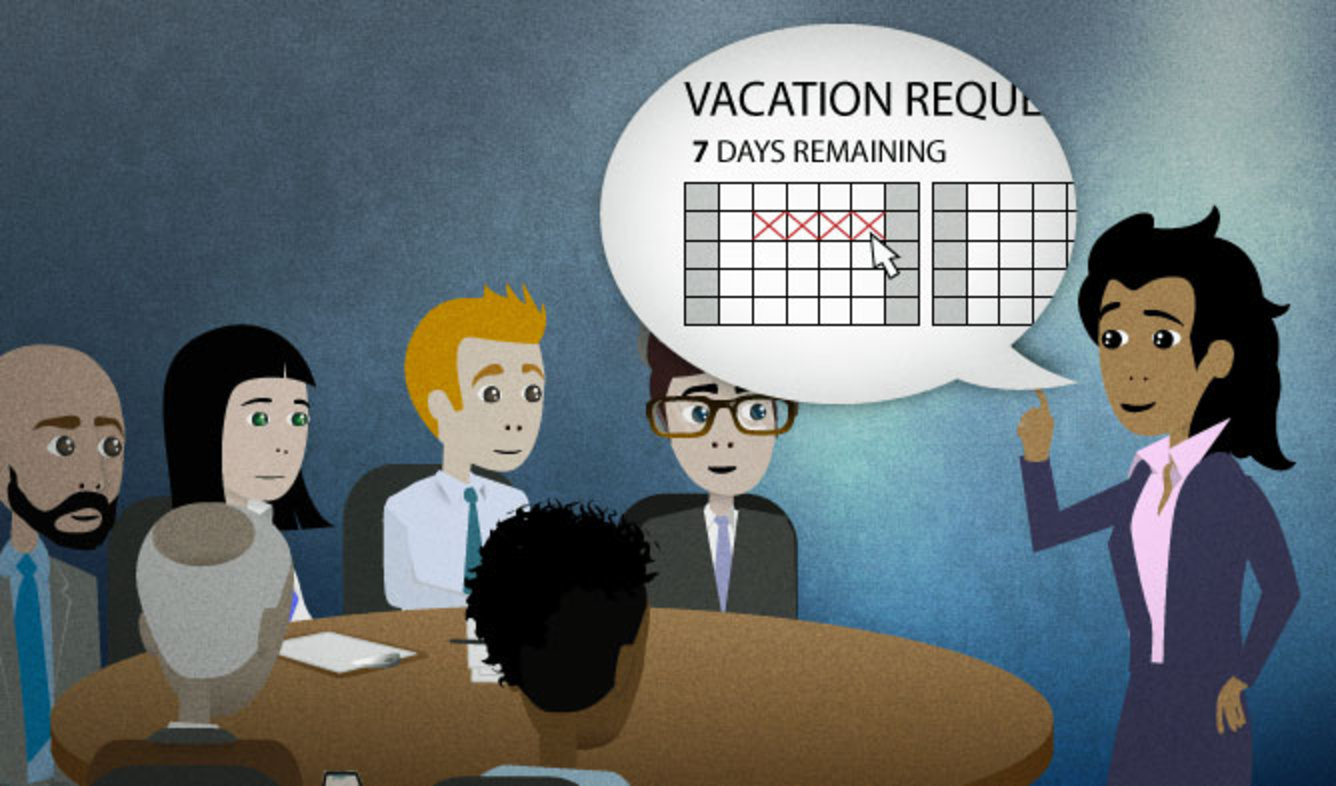“Remember that your days don't carry over, so put in your requests soon.”
You're the manager of a group at work. Some of the people you manage haven't taken theirv vacation days yet. You want them to take their vacations soon, so that they don't all try to take vacations at the end of the year. You say this.
Remember that your days don't carry over, so put in your requests soon.
Want Video and Sound? Follow us on YouTube

Remember that (sentence)
You say this when you're reminding people of something that they should already know.
This sounds really authoritative. Say this when you're someone's boss, parent, teacher, etc.
(someone's) days
In salaried jobs in the U.S., workers get a certain number of vacation days that they can request to take off work.
When employees and managers are talking about someone's vacation days, they often just call them "days". For example:
Do you have many days left?
I'd like to go ahead and put some of my days on the calendar for next year.
As long as the topic of conversation is vacation, listeners will understand what you mean by "days".
(something) carries over
Companies that give their employees vacation days sometimes let the employees keep the days and use them in the next year. In other words, they let the employees "carry over" their vacation days. Other companies don't let employees carry over their days. The employees have to take all of their vacation each year, or they'll lose it.
Other examples of things that can "carry over" include:
- money in a yearly budget
- free calling minutes on your mobile phone service
put in a request
"Putting in a request" means asking for something from your boss, commander, or company in a formal way. You usually "put in a request" by filling out a form or writing a formal letter.
Here are some things that you can "put in a request" for:
- a transfer (to a different location or branch)
- reimbursement for something that you paid for
- vacation days
